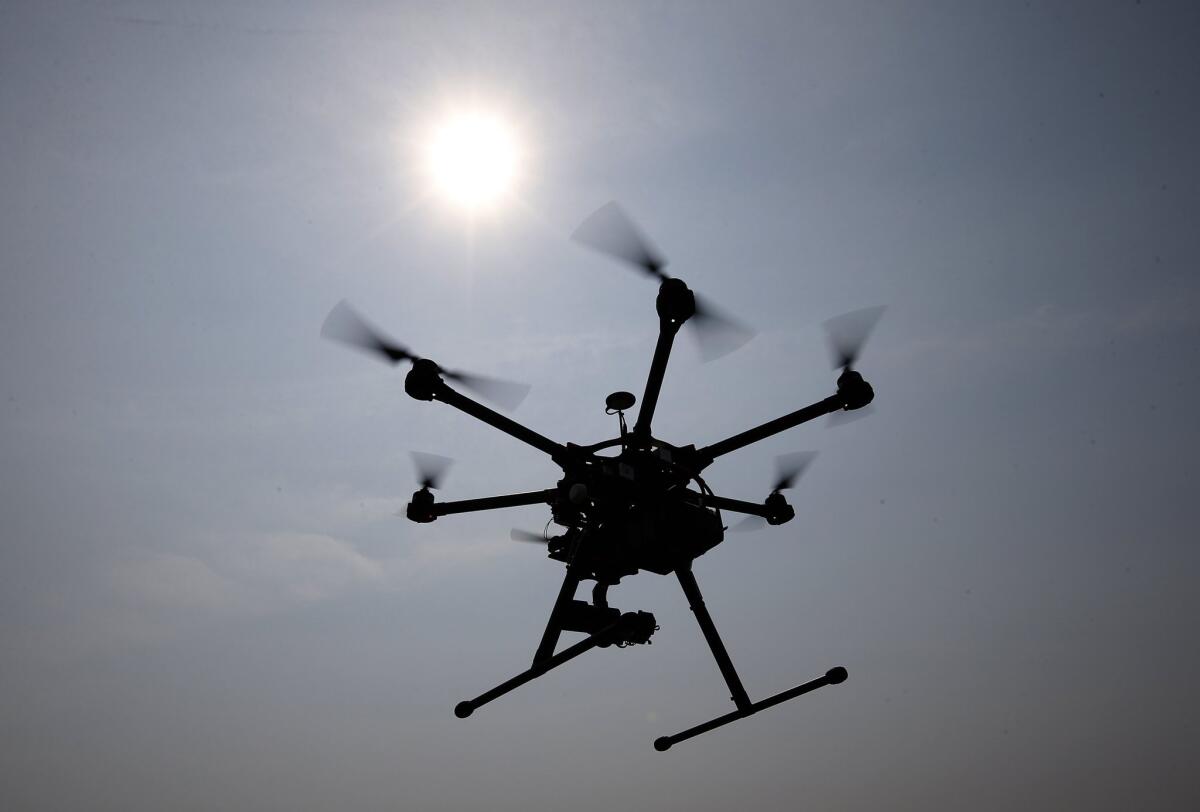FAA predicts that 4.3 million hobbyist drones will be sold by 2020

- Share via
The Federal Aviation Administration is predicting a bright future for the growth of the commercial and hobbyist drone industries after final regulations are approved.
In an aerospace forecast report released Thursday, the FAA said unmanned aircraft systems will be the "most dynamic growth sector within aviation." It noted that venture capitalists have already sunk "considerable" funds into the industry in hopes of building early market share.
Already, the FAA predicted that 1.9 million hobbyist drones will be sold this year, along with more than 600,000 commercial drones.
Here's more predictions for the drone industry.
Huge sales potential for small hobbyist drones
The FAA predicts that 4.3 million hobbyist drones could be sold per year by 2020.
Currently, owners must register their drones online if they weigh between 0.55 pounds and 55 pounds. Registration costs $5 and lasts for three years. Commercial operators must apply for an exemption.
As of March, the FAA said there have been more than 408,000 registrations since the rule was instated in late December.
Possible gains in the commercial drone market
The agency predicts that sales of small commercial drones could jump to 2.7 million by 2020.
But there's a caveat. The FAA said that its predictions are "dependent on the regulatory structure ultimately adopted" for unmanned aircraft systems, or UAS
"Once a final rule for small UAS is published, they will become more commercially viable than they are today," it said in the report.
The FAA has said it hopes to finalize regulations for small commercial drones by June.
The FAA also said it expects commercial demand to increase once regulations "more easily enable" drones to fly beyond an operator's line of sight and one pilot is allowed to operate multiple drones.
Drones as industrial inspectors
The FAA expects that the biggest driver for commercial use will be in industrial inspection with 42% of drones being used in that field. Next comes real estate and aerial photography at 22%, then agriculture at 15%. Insurance and government uses round out the bottom five at 15% and 2%, respectively.
For more business news, follow @smasunaga.
Inside the business of entertainment
The Wide Shot brings you news, analysis and insights on everything from streaming wars to production — and what it all means for the future.
You may occasionally receive promotional content from the Los Angeles Times.








